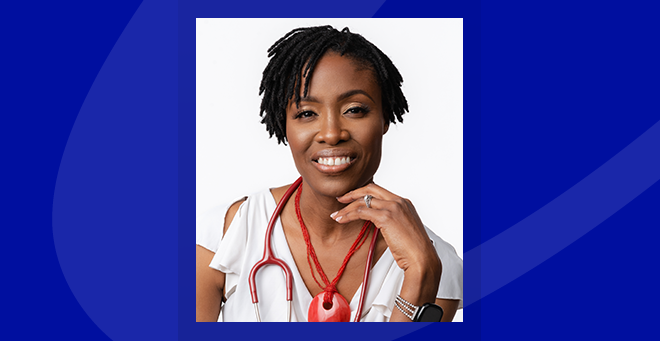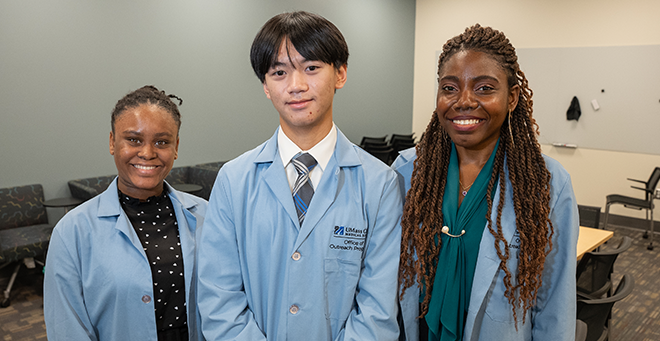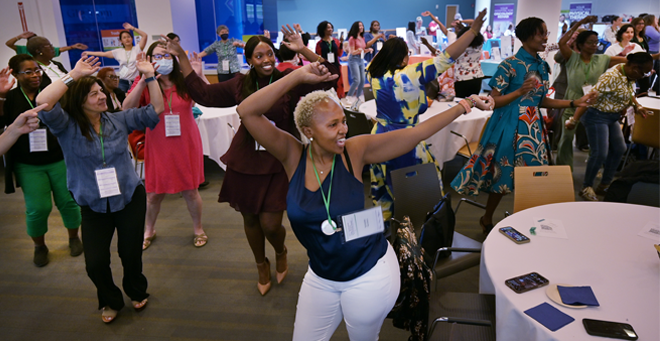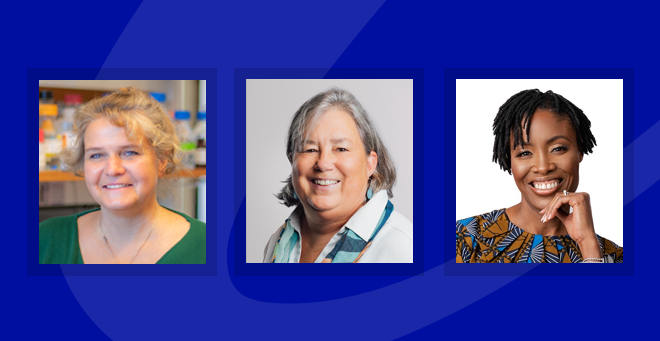In a new Voices of UMass Chan podcast, Crista Johnson-Agbakwu, MD, professor of obstetrics & gynecology and population & quantitative health sciences and executive director of the UMass Chan Collaborative in Health Equity, shares her journey from a first-generation Caribbean immigrant to accomplished physician and health equity advocate.
Dr. Johnson-Agbakwu reflects on the importance of mentorship and pathway programs in creating successful outcomes and bridging the underrepresentation gap in medicine. While earning her bachelor’s degree at Johns Hopkins University, Johnson-Agbakwu experienced a defining moment during a conversation with her mentor, Claudia Thomas, MD, the first Black female orthopedic surgeon in the United States.
“Crista, there are countless physicians who are out there doing excellent work, taking care of their patients, serving their communities, and that is tremendous. But... set your eyes on something even greater. As you pursue your medical degree and career, seek to have a seat at the table where decisions are being made that impact entire communities,” Johnson-Agbakwu recounted.
These are words that Johnson-Agbakwu said she would never forget and that she has used as her guide.
She said she considers her position as executive director of UMass Chan's Collaborative in Health Equity a level of positionality that is “woefully” missing in medicine. Black communities represent 13 percent of the U.S. population but in medicine represent less than 5 percent of U.S. medical professionals. Homing in on Black women in medicine, there are even less at 2.8 percent, and as a Black woman with her placement as a full professor, she represents only 0.8 percent of all physicians in the United States.
While increased awareness does move the needle, Johnson-Agbakwu said she believes allies have the potential to inspire real, impactful change.
“I feel as though what’s so important for those of us who are looking from the outside and want to do good, is to stand in the gap. We need crucial allies to speak up in spaces where we may not be present, or in circles where you absolutely have influence,” she said. “Often that's spaces where it might be lonely to be that lone voice, but that's what advocacy is. That's what speaking truth to power (is): Speaking up for those that are voiceless and powerless.”
Listen to the full Voices of UMass Chan podcast here: umassmed.edu/voices. Subscribe through SoundCloud, Apple Podcasts, Spotify, YouTube, or wherever you listen to podcasts.



